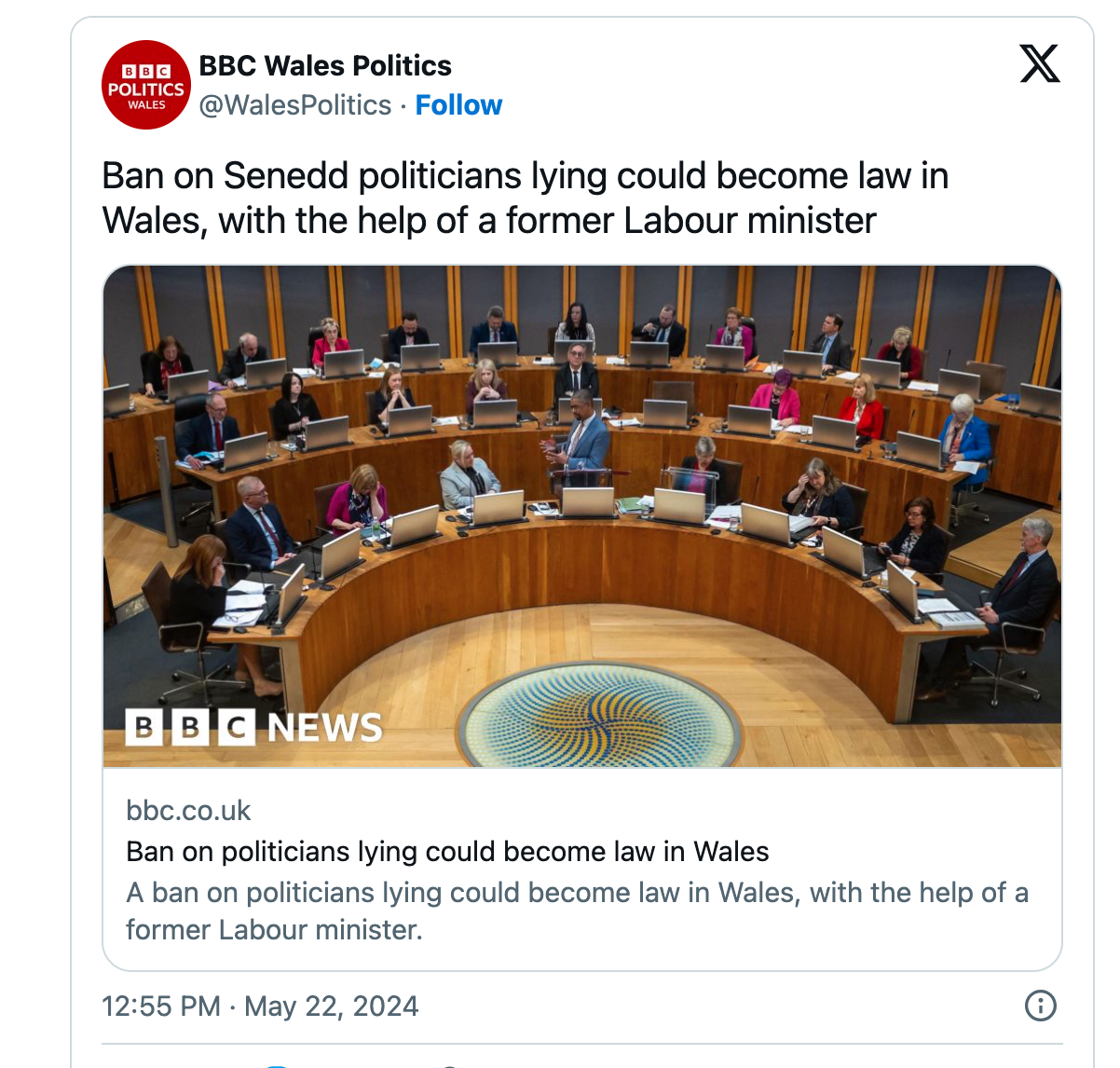
The proposal to criminalize lying by politicians in Wales' Senedd, led by Adam Price, aims to restore trust in politics by holding politicians legally accountable for false statements. While innovative, it raises concerns about democracy and freedom of speech, potentially chilling political discourse and undermining democratic debate. The Welsh Senedd's authority to enact such a law is still being determined, and enforcing it could be problematic. Strengthening existing frameworks for political accountability might offer a more balanced solution. The proposal is a step towards accountability but must be carefully considered to avoid negative impacts on democratic freedoms.
The proposal to criminalize lying by politicians in Wales' Senedd, led by former Plaid Cymru leader Adam Price, is an intriguing yet controversial initiative. It emerges from a backdrop of widespread mistrust in UK politics, where the public's confidence in politicians has been eroded by the perception that they frequently lie without facing consequences.
If implemented, Wales would pioneer a groundbreaking approach: holding politicians legally accountable for knowingly making false statements. This proposal, despite its potential challenges, promises to restore trust in politics and align politicians' accountability with that of other professions, such as lawyers and doctors, who face consequences for ethical breaches.
However, while the proposal is compelling, it raises significant concerns regarding democracy and freedom of speech. The free exchange of ideas and opinions, a cornerstone of democracy, can sometimes include exaggerated or inaccurate statements, making it a crucial aspect to consider in this context.
Imposing criminal sanctions on politicians for lying could chill political discourse, discouraging robust debate and expressing controversial views. This restriction could ultimately undermine the democratic process, where voters are supposed to scrutinize and judge the truthfulness of politicians' statements.
Furthermore, the proposal faces practical and legal challenges. The Welsh Senedd's ability to enact such a law is still being determined, given the limitations of devolved powers and potential conflicts with the broader UK legal framework. The enforcement mechanism, which involves distinguishing between intentional lies and statements of opinion, could also prove problematic, leading to subjective interpretations and potential misuse for political gain.
The initiative also underscores the broader issue of how to hold politicians accountable without infringing on democratic freedoms. Existing frameworks, like the ministerial code and the Nolan principles, already set standards for integrity and honesty but lack robust enforcement. It is crucial to carefully consider these aspects, as strengthening these mechanisms, rather than introducing criminal penalties, might offer a more balanced approach to addressing political mistrust.
**Thanks for reading. Please follow my blog and write your feedback. **